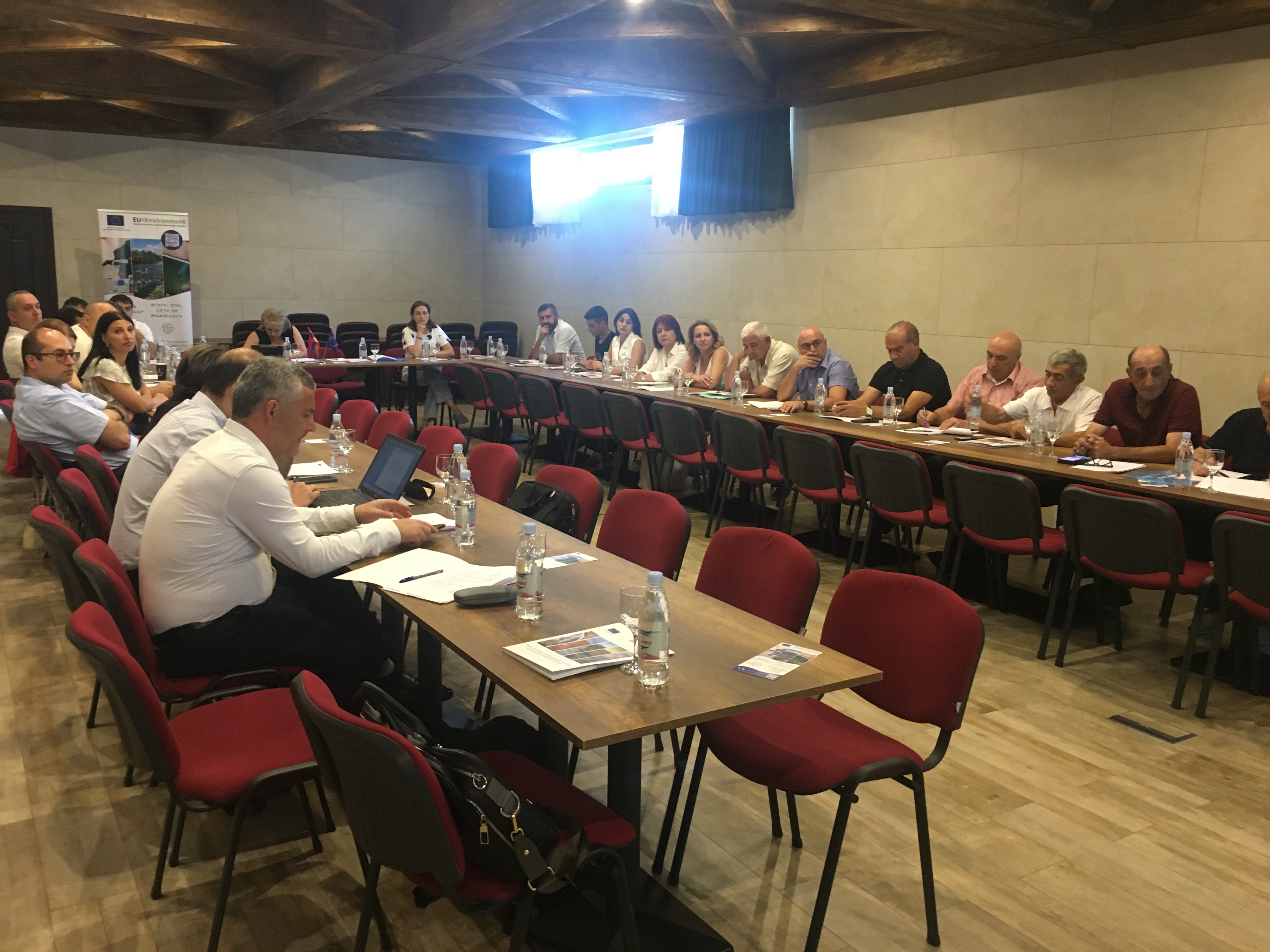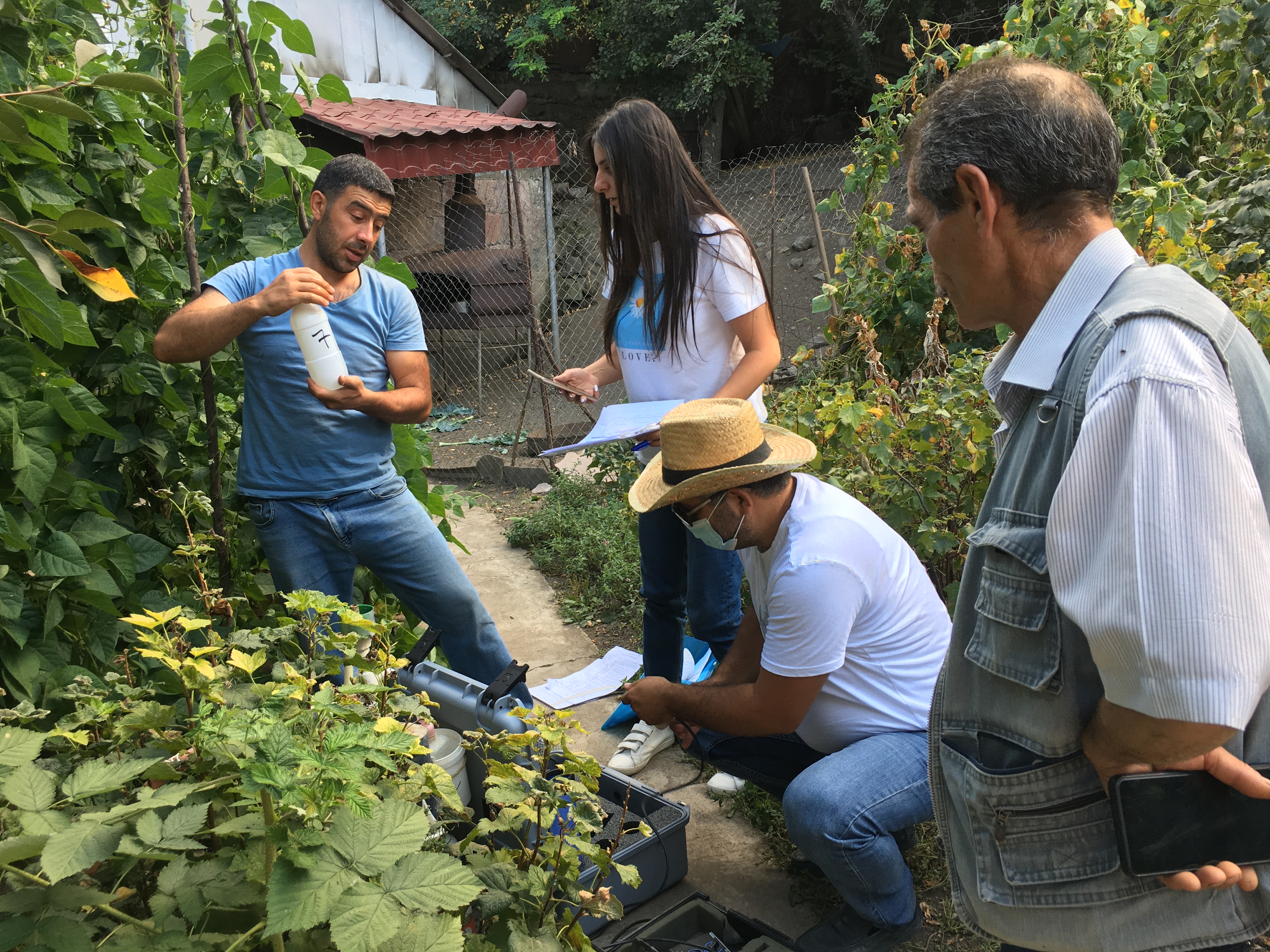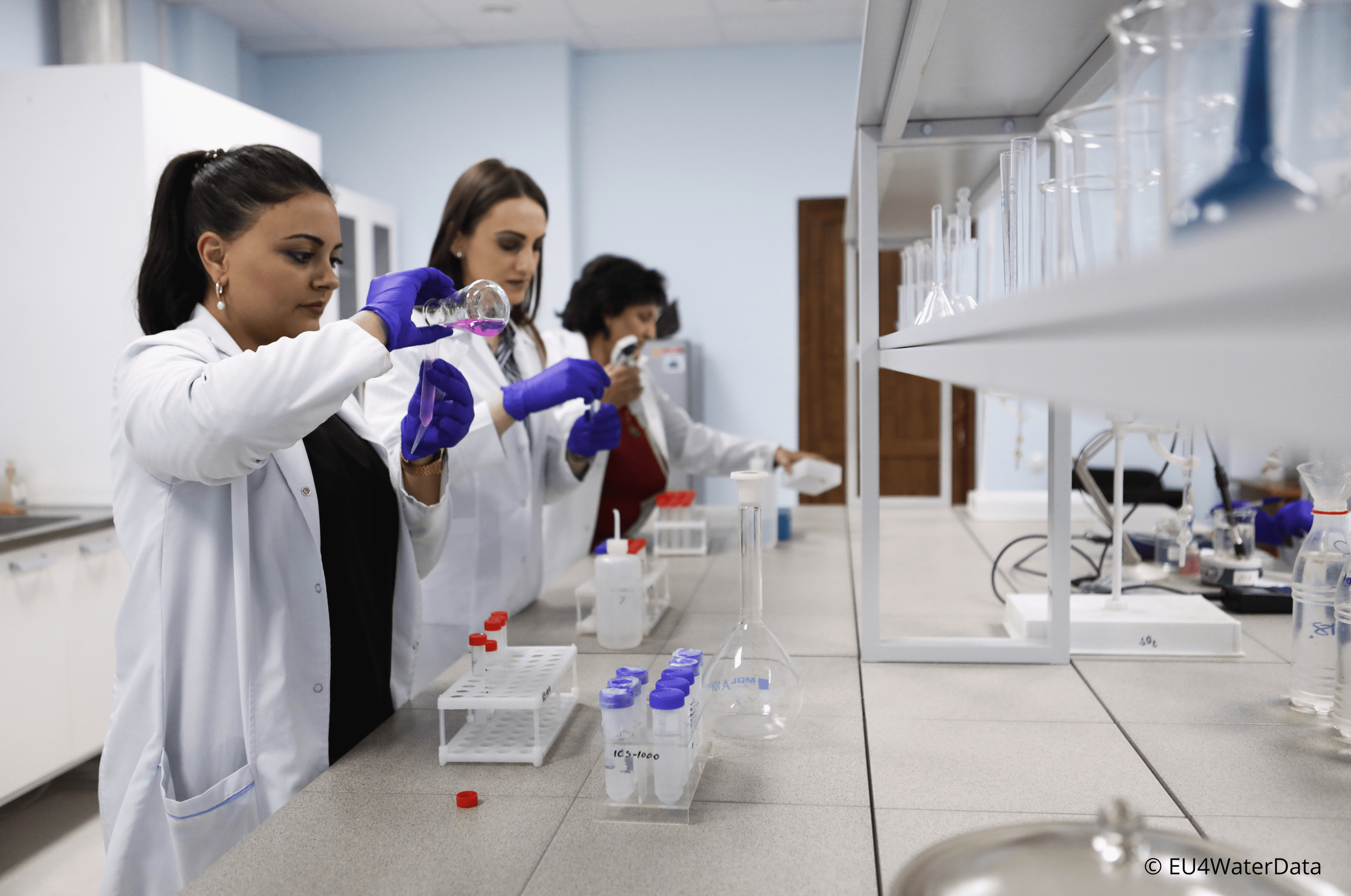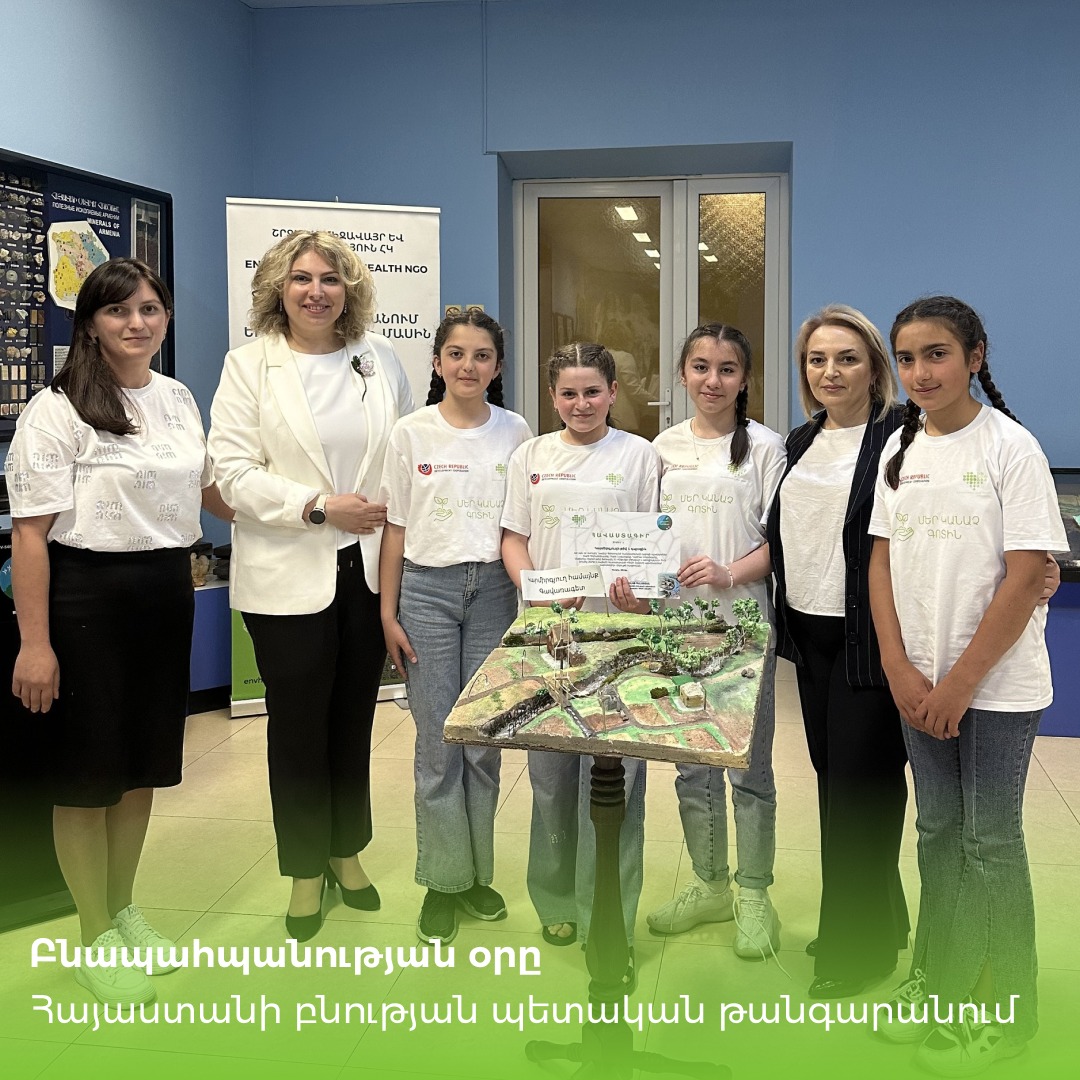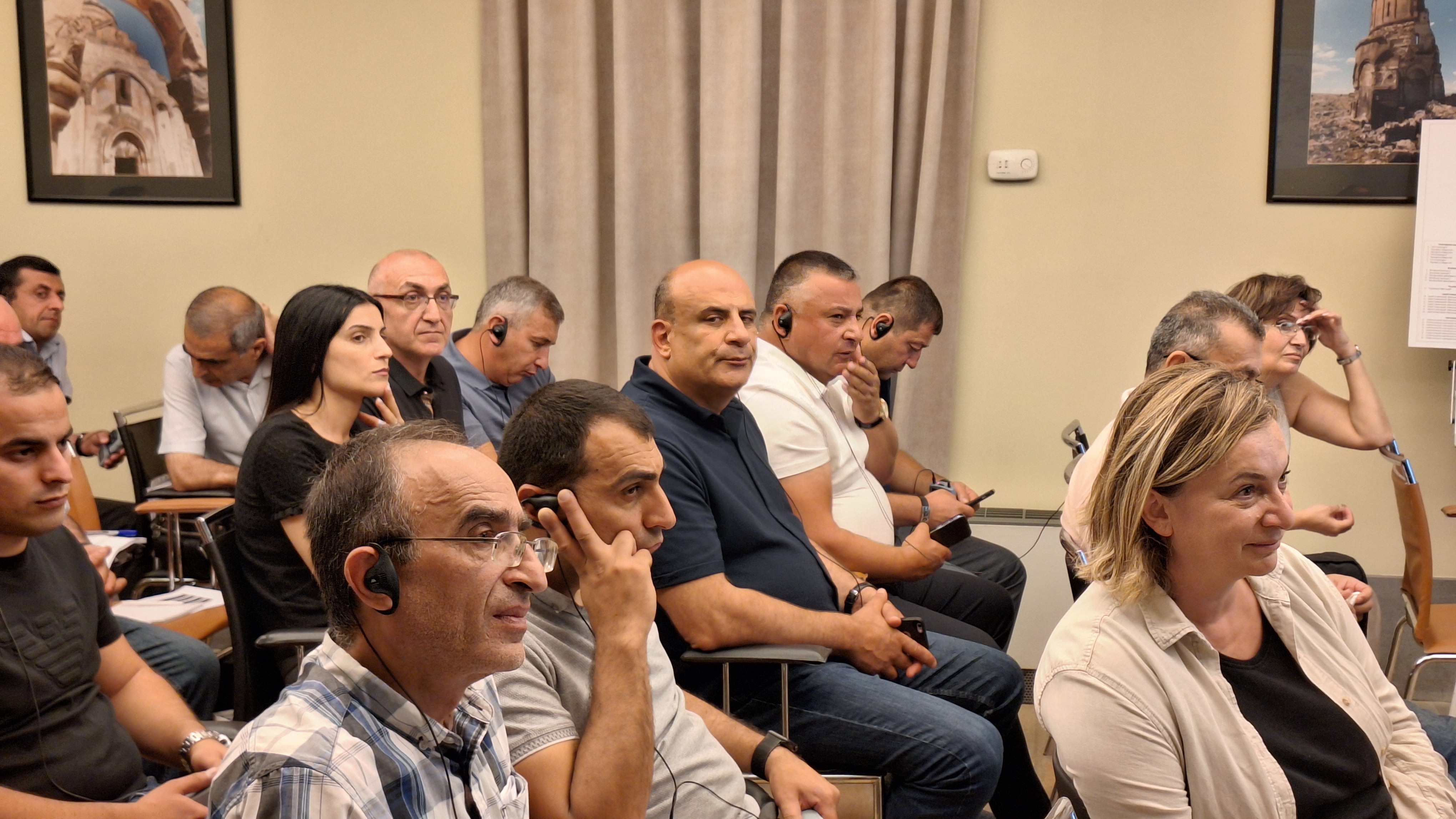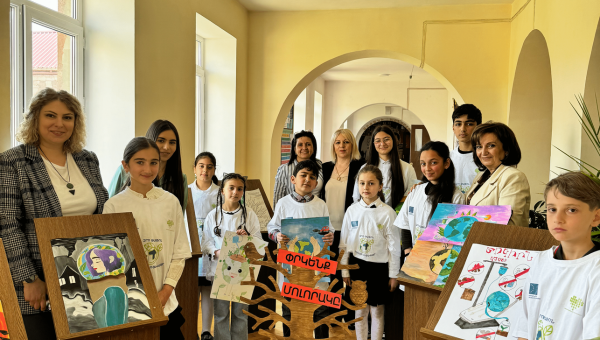- Country: Armenia
- Component: Water resources
The second public consultation workshop on the Quantitative Water Management Plan for the Kasakh River Basin took place in Aragatsotn Marz, Armenia, on 27 August. The workshop was organised by the EU4Environment Water and Data Programme under the supervision of the Ministry of Environment of Armenia.
This plan is crucial for the development of specific recommendations for the management of water resources in times of drought and water scarcity.
The event brought together 31 participants, including representatives from the three Water User Associations (WUAs): Aragatsotn, Kotayk and Ejmiatsin; Veolia; regional authorities; the municipalities of Ashtarak and Aparan; and national authorities: the Ministry of Environment, the Water Committee, the Ministry of Territorial Administration and Infrastructure, and the Ministry of Economy.
Presentations highlighted the seasonal dynamics and quantitative water management challenges
Following a first workshop in June 2023, the aim of this second workshop was to present the progress made in the development of the quantitative water resources management plan for the Kasakh sub-basin. The meeting was chaired by Lilit Abrahamyan, Head of the Water Policy Department of the Ministry of Environment. The Armenian experts from Tsaturyan Consulting, contracted by the EU programme to develop the plan, presented their work on water balance, environmental flows, water use and deficit in the Kasakh River Basin.
Naira Mandalyan from the Statistical Committee of Armenia delivered a presentation on water accounts for the Kasakh Basin. She provided a detailed analysis of water supply and use by quarters, which proved to be a very useful and awareness-raising exercise for the stakeholders.
Following the presentations, a dedicated session allowed stakeholders to provide feedback on the plan, which have been integrated into the revised thematic summaries.
This consultation is an important step towards the sustainable management of water resources in the Kasakh Basin, and aims to build a consensus on water use that can be replicated in other water-stressed sub-basins in Armenia or in other Easter partnership countries. The EU-based methodology used by Armenian experts for this plan was presented at a regional workshop in June. The presentations are available at the link below.


